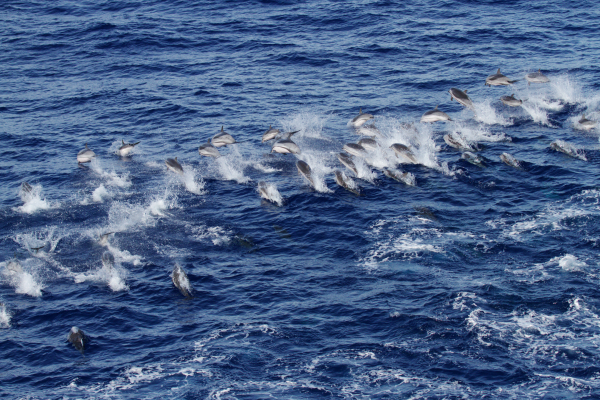The Scientific Committee of the IWC meets in San Diego
Approximately 200 of the world’s leading cetacean scientists are gathering in San Diego for the annual meeting of the IWC Scientific Committee. Around one hundred separate sessions will take place over the next two weeks as scientists scrutinise the latest research on a wide range of subjects, from ecosystem modelling and population estimates, to climate change and the impact of underwater noise.
This year’s programme begins with two pre-meetings: on cetacean disease and whalewatching. The Cetacean Emerging and Resurging Diseases Group was formed in 2008, in recognition of the need for increased information sharing at an international level.
There is potential for disease to spread rapidly amongst migratory species, and the group aims to improve coordination between disease specialists, stranding response groups (whose role can provide access to first-hand information) managers and researchers. This pre-meeting aims to determine the role that the IWC can play with regards to disease surveillance, diagnosis and risk management.
Whalewatching is a very different, but equally important area of IWC work. This fast-growing industry has economic benefits for a wide range of coastal communities but good management is essential to ensure there is no negative impact on the whales or their habitat. The IWC Working Group on Whalewatching has established a five year strategy. It is also developing a web-based handbook of best practice which aims to provide information on all aspects of whalewatching, including training, governance, capacity building and compliance. The group will be using their pre-meeting to work on this handbook.
The Scientific Committee will begin with a plenary session on 22 May and runs until 3 June. A joint meeting of the Scientific and Conservation Committees will follow immediately after on the 4/5 June. The Conservation Committee considers policy and management aspects of cetacean conservation, and works closely with the Scientific Committee to understand and address a range of threats to whales and their habitats.
The Scientific Committee has met every year since 1950. The discussions and recommendations of this annual meeting are recorded in a detailed report that is presented to the Commission and provides a scientific foundation for IWC policy making. The meeting is not open to observers but the full report will be published on 19 June and available via the IWC home page. To read Scientific Committee Reports from previous years click here.

